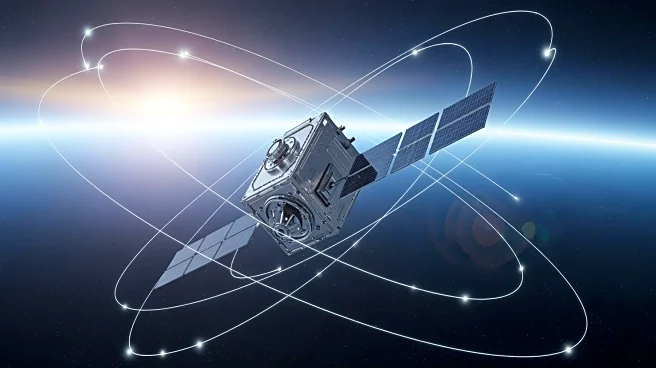What's Happening?
NASA and the China National Space Administration (CNSA) have engaged in a rare collaborative effort to prevent a potential satellite collision. This marks the first instance of direct communication initiated
by Beijing with NASA regarding space traffic management. The CNSA reached out to NASA, suggesting that NASA hold its position while CNSA performs the necessary maneuver to avoid the conjunction, a term used to describe two satellites passing dangerously close to each other. This development highlights the growing need for international cooperation as the number of satellites in orbit increases, raising the risk of near misses and potential debris-generating collisions. Both the United States and China are rapidly expanding their satellite constellations, with SpaceX's Starlink and China's Guowang and Thousand Sails networks leading the charge.
Why It's Important?
The collaboration between NASA and CNSA is significant as it reflects a shift towards increased cooperation between two major space-faring nations, despite existing legislative barriers such as the Wolf Amendment. This U.S. law restricts most bilateral collaborations between NASA and Chinese government agencies due to concerns over technology transfer and national security. The exchange underscores the importance of communication in preventing catastrophic space incidents, which could have far-reaching implications for global satellite operations and space sustainability. As low Earth orbit becomes increasingly crowded, the need for effective space traffic management and international coordination becomes more critical, potentially influencing future policy and collaboration frameworks.
What's Next?
While this exchange represents a positive step towards cooperation, ongoing legislative restrictions like the Wolf Amendment continue to limit broader collaboration between NASA and CNSA. Future interactions may remain confined to emergency situations unless policy changes occur. The growing number of satellites necessitates improved space situational awareness and debris management strategies, which could lead to more frequent communications between nations. As both countries expand their satellite networks, further dialogue may be essential to ensure the safety and sustainability of space operations.
Beyond the Headlines
This development could signal a gradual shift in the dynamic between U.S. and Chinese space programs, potentially paving the way for more collaborative efforts in space traffic management. The incident highlights the ethical and strategic importance of international cooperation in space, as the consequences of satellite collisions extend beyond national borders, affecting global communications and technological infrastructure.










